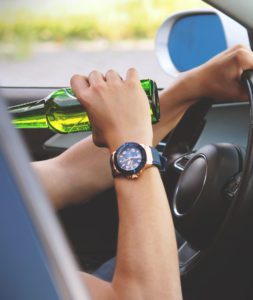Florida Court of Appeal Allows Personal Representative to Pursue Drunk Driving Accident Case

In the early phases of litigation, parties may move for summary judgment, arguing that the case should not move forward due to some legal preclusion specific to the type of injury. A common argument made by defendants in South Florida car accident cases is that there is no genuine issue of material fact for the jury to consider, so dismissal is the only route acceptable under the law. A trial court has substantial discretion to dismiss an action, but it is not allowed to dismiss based on the weight of the evidence for either party. If there is any factual question of whether or not a defendant or defendants could be found liable, that question must be answered by a jury.
A recent case addresses a summary judgment entered in favor of a defendant golf club that served drinks to a drunk driver who crashed into the decedent, causing her death. The decedent’s representative filed suit against the driver and the golf course that sold alcohol to the driver prior to the accident under Florida’s reverse dram shop liability statute, section 768.125, Florida Statutes (2014). At the time of the accident, the driver had a blood alcohol content of .302.
In its defense, the club asserted it was not liable under the dram shop statute since they did not know the club member was habitually addicted to alcohol. The club stated there was no competent evidence on record that the driver was habitually addicted, nor was there evidence the club had knowledge of her alleged addiction. In response, the representative filed depositions of the driver, a friend of the driver, and relevant employees of the club. The depositions revealed the driver played 70-80 times over a three-year period prior to the crash. The friend testified that she was intoxicated nearly every time they played together at this club. The driver often started with two strong whiskey cocktails, poured by staff of the club. The driver would then return to the clubhouse at the midpoint turn of the course for a third whiskey cocktail, all while purchasing and drinking additional alcoholic beverages from the “cart girl” employee of the club. The friend testified that on the day of the accident, the “cart girl” poured and served eight ounces of pure alcohol to the driver. The estate also submitted an affidavit from a laboratory director at the County’s medical examiner’s department. The affidavit estimated the driver’s blood alcohol content when she left the club to be .27. Despite this proof, summary judgment was granted to the club. The estate appealed.
The Court of Appeal agreed with the case law cited by the respondent, which requires the plaintiff to present evidence the vendor knew the purchaser of alcohol was habitually drunk. The knowledge element may be met by sufficient circumstantial evidence, which can include testimony of serving the individual a substantial number of drinks on multiple occasions. The jury would then make the ultimate determination of whether the vendor knew the person was a habitual drunkard. The appellate court concluded upon its review of the record that the personal representative presented sufficient evidence to raise a factual dispute and that summary judgment was not appropriate. The summary judgment was reversed and the case remanded to the trial court, allowing the estate to move forward with its wrongful death action.
If you or a family member has been hurt in a car accident caused by a drunk driver, the South Florida drunk driving accident attorneys at Weston & Pape will aggressively pursue justice and damages on your behalf. These types of accidents can lead to serious, life-long injuries, and our office will seek to maximize the settlement or award to relieve the financial stress. Call today for a free, confidential consultation at 772-266-5555 or 561-299-3999.
More Blog Posts:
Florida District Appellate Court Reviews Future Medical Expenses in Multi-Car Accident Case, Florida Injury Lawyer Blog, November 28, 2016
Federal Circuit Court of Appeal Declines to Find Equitable Tolling in Slip and Fall Case, Florida Injury Lawyer Blog, October 21, 2016
Florida Court of Appeal Allows Injured Motorist to Pursue Additional PIP Payments to Medical Providers, Florida Injury Lawyer Blog, May 18, 2017

 Call Us Today
- It's Free
Call Us Today
- It's Free